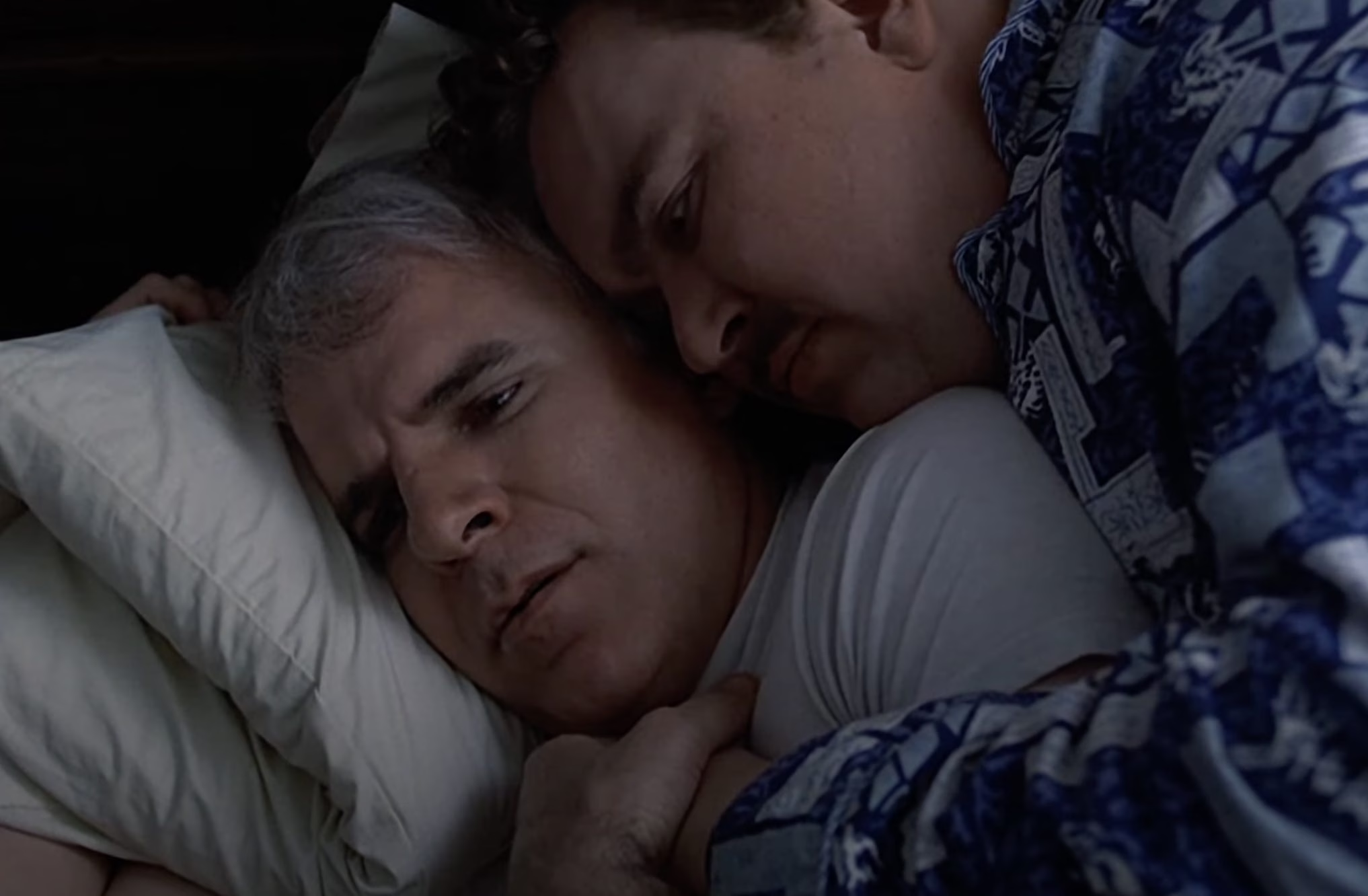You’ve had the date. Chemistry? Nailed. The move? Made. Everything’s going great until her head hits the pillow and suddenly you’re wide awake, lying there in the dark like a guy who forgot how beds work. Turns out, this isn’t just you.

For a lot of guys, sleeping with a partner (literally, not just sexually) creates tension. Whether it’s snoring, different sleep habits, or the pressure of lying next to a relative stranger, it can turn sleep time into a battle. Even married men—especially those juggling work stress, kids, and early mornings—struggle with the same thing. They’re expected to perform emotionally, physically, and professionally, yet they’re clocking fewer and fewer hours of real, restorative thanks to trouble actually sleeping with a partner.
The good news? You’re not broken. And you’re not alone. Science shows this is a real thing. Even better, there are ways to fix it.
The Biological Case for Bad Sleep
There’s a reason your body won’t shut down. Studies show that when you sleep next to someone regularly, your brains and sleep cycles start to sync up. That can be great: it boosts oxytocin (the “love hormone”) and can make you feel more secure.
But it also means you’re hyper-aware of movement, temperature changes, and noise. One study found up to 30% of your sleep quality is influenced by your partner’s habits. If she’s a restless sleeper, you’re probably a restless sleeper, too.
Why This Hits Men Harder
Guys tend to move more during sleep and run hotter. That’s not a character flaw. It’s biology. Men typically have a greater proportion of muscle mass compared to women. Muscle tissue is more metabolically active and generates more heat as a byproduct of its energy use. But when your presence is part of the problem, the result is often guilt, withdrawal, or the couch.
Add in the fact that poor sleep lowers testosterone and tanks your mood, and suddenly the intimacy you want becomes harder to feel. Being tired all the time makes sex less appealing, empathy harder, and your ability to handle stress worse. It’s not just about sleep—it’s about keeping your relationship healthy.
Real Fixes That Actually Work
You don’t need a therapist or a second apartment. You just need a few adjustments. These are small but proven changes that can improve how you sleep without wrecking the connection you’ve built.
Get more space
A king-size bed gives you room to move without playing bumper cars at 2 a.m.
Cool it down
Ideal sleep temp is 16–19°C. Hot sleepers should try breathable bedding linen or bamboo is ideal and avoid heavy comforters.
Use your own blankets
The Scandinavian method (separate duvets or sheets) isn’t about emotional distance. It’s about better sleep and fewer arguments over stolen covers.
Keep the bed tech-free
Phones and tablets mess with your body’s melatonin. Try a wind-down routine that doesn’t involve screens.
Tackle the noise
If she snores, try earplugs or white noise. If you’re the snorer, look into a new pillow, a sleep positioner, or get checked for sleep apnea.
Time for a Sleep Divorce?
If you’ve tried the gear, made the changes, and you’re still not sleeping? It might be time to consider what some call a “sleep divorce.”
That doesn’t mean you’re in trouble. In fact, couples who sleep apart—yet stay emotionally connected—often report better relationships overall. The key is talking it through. Make the decision together, and plan ways to stay close. Shared morning routines, cuddle time before separating, and open communication keep intimacy strong.
Sometimes, the best way to sleep with your partner is to stop sleeping in the same bed. Rest first. Connection follows.
Lack of sleep doesn’t make you weak. Ignoring it does. The smarter play is to treat sleep like training: get the environment right, pay attention to what your body needs, and work with your partner not against her the easier it is sleeping with a partner.
Because sharing a bed shouldn’t be a test of endurance. It should make both of you better.




